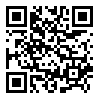Volume 10, Issue 2 (winter 2024)
IJRN 2024, 10(2): 98-107 |
Back to browse issues page
Download citation:
BibTeX | RIS | EndNote | Medlars | ProCite | Reference Manager | RefWorks
Send citation to:



BibTeX | RIS | EndNote | Medlars | ProCite | Reference Manager | RefWorks
Send citation to:
Hajidoost Giv F, Ghanaifar M, Shahabizadeh F. Effectiveness of Behavioral-Cognitive Group Training of Anxiety and Academic Vitality in Students. IJRN 2024; 10 (2) :98-107
URL: http://ijrn.ir/article-1-825-en.html
URL: http://ijrn.ir/article-1-825-en.html
Assistant Professor, Department of Psychology, Islamic Azad University, Birjand Branch, Birjand, Iran.
Abstract: (2644 Views)
Introduction: Anxiety is one of the psychological factors that learners of the educational system experience a wide range of, on the other hand, academic vitality is one of the capabilities that play a role in students' adaptation, so the present study aims to determine the effectiveness of behavioral-cognitive group training in anxiety and the academic life of the students was done.
Method: The current research method was quasi-experimental with a pre-test and post-test design and a control group with a follow-up period. The research population included all secondary school girls in Birjand city in the academic year of 2021-2022, 30 of whom were selected using accessible sampling and were randomly divided into two test groups (15 people) and control groups (15 people). The data collection tools included Lavibond and Lavibond's anxiety questionnaire and Dehghanzadeh and Hossein Chari's academic vitality. The experimental group was subjected to intervention in eight face-to-face sessions of 90 minutes over a period of eight weeks (two months) and the control group received the usual intervention. In data analysis, analysis of variance with repeated measurement between groups was used with SPSS version 20 software.
Results: The results showed that the average anxiety scores in the behavioral-cognitive group training group compared to the control group in the post-test and follow-up stages decreased compared to the pre-test stage, but the academic vitality variable increased, and these results continued in the follow-up period as well. (P<0.01)
Conclusion: According to the obtained results, the use of behavioral-cognitive group training had positive effects on reducing anxiety and improving the academic vitality of students, therefore, it is suggested to use this treatment as a complementary treatment in schools and medical centers for students.
.
Method: The current research method was quasi-experimental with a pre-test and post-test design and a control group with a follow-up period. The research population included all secondary school girls in Birjand city in the academic year of 2021-2022, 30 of whom were selected using accessible sampling and were randomly divided into two test groups (15 people) and control groups (15 people). The data collection tools included Lavibond and Lavibond's anxiety questionnaire and Dehghanzadeh and Hossein Chari's academic vitality. The experimental group was subjected to intervention in eight face-to-face sessions of 90 minutes over a period of eight weeks (two months) and the control group received the usual intervention. In data analysis, analysis of variance with repeated measurement between groups was used with SPSS version 20 software.
Results: The results showed that the average anxiety scores in the behavioral-cognitive group training group compared to the control group in the post-test and follow-up stages decreased compared to the pre-test stage, but the academic vitality variable increased, and these results continued in the follow-up period as well. (P<0.01)
Conclusion: According to the obtained results, the use of behavioral-cognitive group training had positive effects on reducing anxiety and improving the academic vitality of students, therefore, it is suggested to use this treatment as a complementary treatment in schools and medical centers for students.
.
Type of Study: Research |
Subject:
Other topics
Received: 2023/06/7 | Accepted: 2023/12/17 | Published: 2024/02/24
Received: 2023/06/7 | Accepted: 2023/12/17 | Published: 2024/02/24
Send email to the article author
| Rights and permissions | |
 |
This work is licensed under a Creative Commons Attribution-NonCommercial 4.0 International License. |





